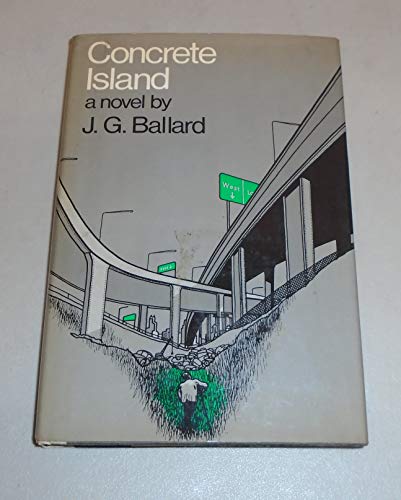
Given the peculiar topography of the island, its mantle of deep grass and coarse shrubbery, and the collection of ruined vehicles, there was no certainty that he would ever be noticed at all. He realized, above all, that the assumption he had made repeatedly since his arrival on the island – that sooner or later his crashed car would be noticed by a passing driver or policeman, and that rescue would come as inevitably as if he had crashed into the central reservation of a suburban dual carriageway – was completely false, part of that whole system of comfortable expectations he had carried with him.

So Concrete Island can be read as a parable of alienation of an individual in the vast urbanized world. In fact, the whole city was now asleep, part of an immense unconscious Europe, while he himself crawled about on a forgotten traffic island like the nightmare of this slumbering continent. Ballard's novels and stories, especially dystopian modernity, bleak man-made landscapes and the psychological effects of technological, social or environmental developments." The Oxford Dictionary of National Biography entry describes Ballard's work as being occupied with "eros, thanatos, mass media and emergent technologies".Įven if no man is an island, in the modern world any man could be found living in a total psychological isolation like on a desert island. The literary distinctiveness of Ballard's work has given rise to the adjective "Ballardian", defined by the Collins English Dictionary as "resembling or suggestive of the conditions described in J. Described as "The best British novel about the Second World War" by The Guardian, the story was adapted into a 1987 film by Steven Spielberg.

While many of Ballard's stories are thematically and narratively unusual, he is perhaps best known for his relatively conventional war novel, Empire of the Sun (1984), a semi-autobiographical account of a young boy's experiences in Shanghai during the Second Sino-Japanese War as it came to be occupied by the Japanese Imperial Army. The story was later adapted into a film of the same name by Canadian director David Cronenberg.

In 1973 the highly controversial novel Crash was published, a story about symphorophilia and car crash fetishism the protagonist becomes sexually aroused by staging and participating in real car crashes. In the late 1960s and early 1970s Ballard focused on an eclectic variety of short stories (or "condensed novels") such as The Atrocity Exhibition (1970), which drew closer comparison with the work of postmodernist writers such as William S. Ballard came to be associated with the New Wave of science fiction early in his career with apocalyptic (or post-apocalyptic) novels such as The Drowned World (1962), The Burning World (1964), and The Crystal World (1966).

G." Ballard (15 November 1930 – 19 April 2009) was an English novelist, short story writer, and essayist.


 0 kommentar(er)
0 kommentar(er)
